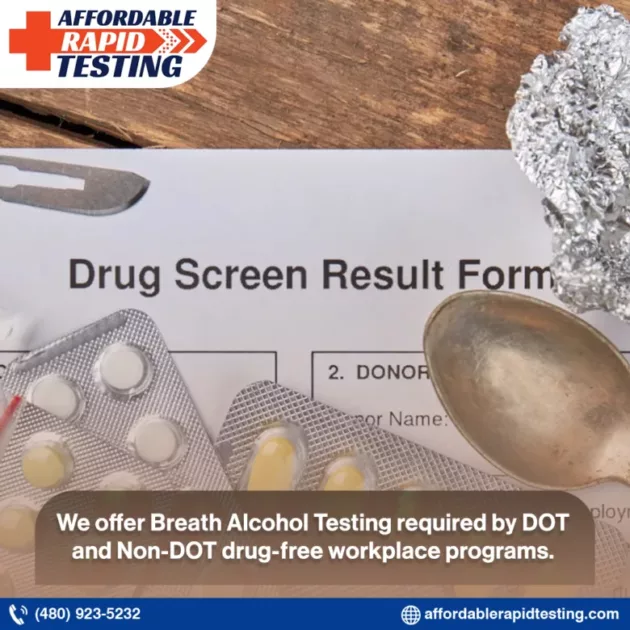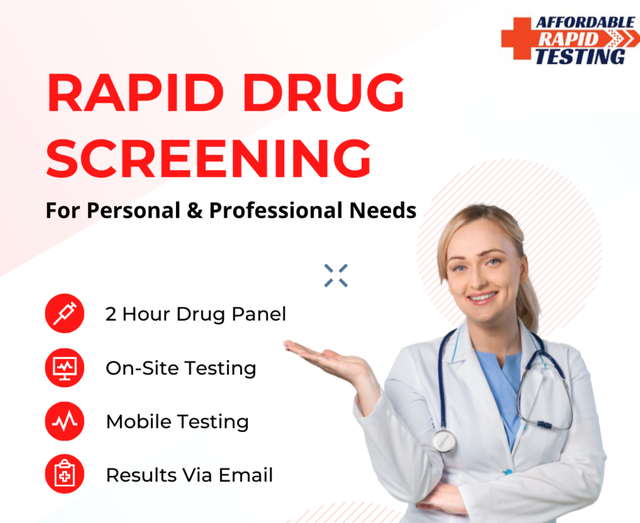Do you have questions about workplace drug testing? Modern medical technology allows for drug testing in the workplace and determining whether an employee has recently taken a drug. In this guide, let’s go over everything you need to know about workplace drug testing and more.
What Exactly Is Drug Testing In The Workplace?
Employers can use workplace drug testing to determine whether job applicants or employees use drugs, including prescription drugs, illegal drugs, and alcohol. When the drug testing policy is clear and shared with all of your employees, as well as information about drug and alcohol abuse, education and training of supervisors about the symptoms and signs of drug and alcohol abuse, and an employee assistance program that helps employees who struggle with drug or alcohol abuse, drug testing tends to work well.
Drug and alcohol abuse can lead to workplace health and safety hazards, as well as lower employee morale and productivity. It can also result in additional costs for your company in the form of short-term disability claims and other healthcare claims. Employee drug testing in the workplace is vital for the following reasons:
- Prevent hiring employees who use illegal drugs
- Provide a safe and healthy workplace for all employees
- Identify and assist employees who have alcohol and drug problems
- Keep the general public safe
- Prevent employees from abusing drugs and alcohol
- Comply with federal and state laws
How Accurately Is Drug Testing Performed?
Employers are given a lot of leeway in determining how a drug policy will work best for their company. Only federally regulated organizations, such as those affiliated with the United States Department of Transportation, have regulations governing their drug testing policies.
The most common method of drug testing in the workplace purposes is a urinalysis performed at a doctor’s office or medical facility selected by the employer. The employee will provide a urine specimen during this procedure, usually in a controlled environment to prevent adulteration of the specimen while still allowing the individual to maintain privacy. If your office is in somewhere in Arizona, US, book Affordable Rapid Testing and the healthcare provider will reach your office to collect the specimen from your employees and people.
To complete testing, the sample will be sent to a certified laboratory. While these laboratories have a high accuracy rate, they are only certified to test for five primary substances and alcohol. The employer will be notified if the test results are positive. It is important to note that some medications will produce a positive result, so every person, undergoing the test, should mention any medication they are taking.
What Are The Different Types of Workplace Drug Testing?
When do employers conduct random drug testing? Employers may conduct drug tests as part of the pre-employment screening process and may also test employees for drug and alcohol use under certain conditions. Drug testing is widespread in many industries. Requiring it helps to keep employees safe and secure, especially in physically demanding industries such as manufacturing or construction. Employers retain responsibility and oversight as well. In the workplace, there are numerous types of drug tests. Some of those include:
- Blood Drug and Alcohol Test
When screening job candidates or employees for illegal drugs, a blood drug test helps a lot. It determines the amount of alcohol or drugs present in the blood at the time of the test.
- Alcohol Breath Tests
Breath alcohol testing devices, also known as breathalyzer tests, measure the amount of alcohol in the air you exhale. The results estimate the amount of alcohol currently present in the blood.
Breath alcohol workplace drug testing detects current levels of impairment or intoxication rather than previous use. One ounce of alcohol typically stays in a person’s system for one hour.
- Hair and Fingernail Drug Test
A hair drug test, also known as a hair follicle drug test, detects drug use within 90 days. It only indicates past drug use, not current impairment. Technicians will cut a small amount of hair near the scalp to test for the presence of drugs in the hair shaft. Besides, a fingernail drug test can also detect recent drug usage.
- Urine Drug Screening
Urine tests are another type of employment drug testing. As one of the most common types of drug tests, it is frequently used for pre-employment screenings, randomly selected screenings, or when circumstances necessitate it. Urine drug tests are the least invasive type of drug testing. They are also the most legally acceptable form of drug testing in the workplace. Although urinalyses detect drug metabolites in urine samples, they are prone to adulteration and false positive results, making them less reliable than hair or fingernail tests.
The Pros and Cons of Drug Testing in The Workplace
The following are some of the perks of drug testing in the workplace:
- Workplace drug testing increases employee responsibility, especially for those who might otherwise work under the influence of drugs or alcohol and endanger not only themselves but also their colleagues, customers, and the general public.
- Workplace drug testing also identifies employees who have drug and alcohol problems and require outside assistance. People struggling with drug and alcohol addiction may not seek help right away, but drug testing can help identify workers with issues rather than relying on self-reporting. Employers can then assist these employees through a rehabilitative program.
- Workplace drug testing improves workplace health and safety by discouraging employees who would otherwise consume alcohol or experiment with illegal drugs. Drug testing discourages these employees from abusing drugs, which can help reduce health problems and the risk of workplace injuries or accidents.
Some disadvantages of workplace drug testing include:
- Random drug testing simply informs employers that an employee used a specific drug in the past. This isn’t always useful, because the primary goal of drug testing is to discourage intoxication while employees are at work.\
- Because workplace drug tests do not detect drug use in real-time, they cannot be a true safety measure. When they know they will be subjected to a drug test, many job candidates simply stop using drugs.
- False positives on drug tests are common because certain foods and medications can test positive for illicit substances.
Are Drug Tests At Work A Real Thing In The Us?
Yes, in every state in the United States. Pre-employment drug testing is required for certain professions, particularly those overseen by the US Department of Transportation. Canada, on the other hand, has a strong policy against pre-employment drug testing, though employers in Canada can take action if certain behaviors are observed in the workplace.
Conclusion
If you require assistance with information on workplace drug testing, please contact the experts at Affordable Rapid Testing at 480-819-9408. For all needs, both personal and professional, we provide drug testing. We hold DOT and DHHS certifications as urine specimen collectors. Services include up to eleven different drug screenings. For more information, visit our website.


